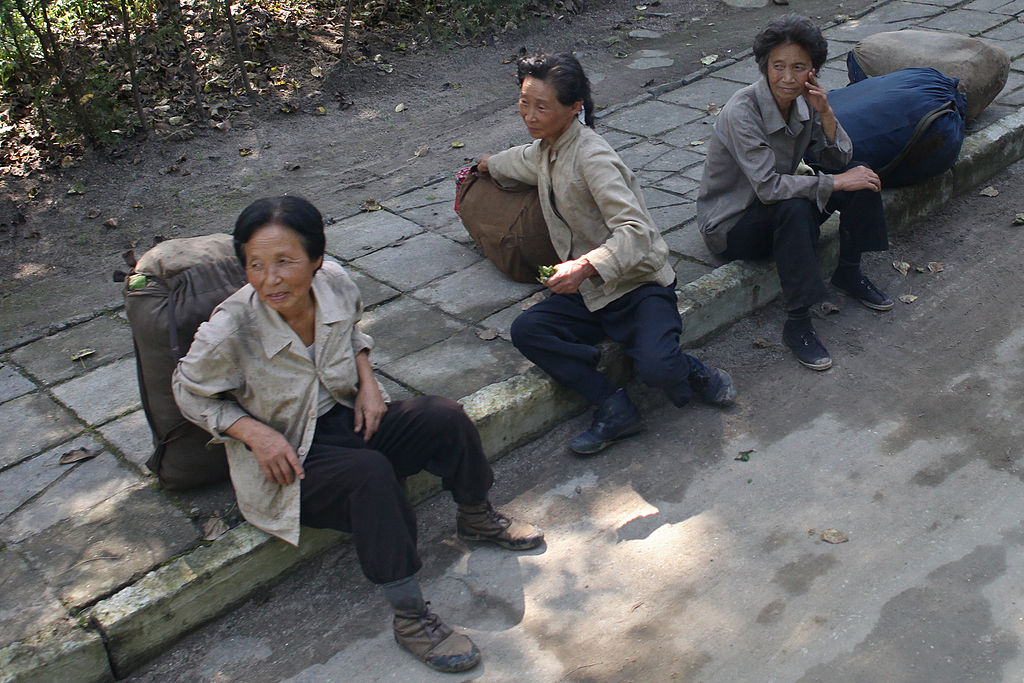Why are mothers the first to go hungry?

Who is the first to go hungry in a North Korean household? It is always the mother.
Women are both victims of the regime and the pillars of their families’ survival. With state rations that sustained the citizenry up to the mid-1990s long gone and the marketplace now the stage for survival, women live not as “mothers of the nation” but as shields for their families.
That is because until recently, men were still required to report to work. Even though their state jobs paid very little and often nothing at all, failure to show up branded a man as “disloyal.” The burden of providing for the family thus fell mostly on women.
Women rising at 4 a.m. to head to the market. Women fleeing with their goods when crackdowns hit. Such are the scenes that became part of daily life. If caught, their goods were confiscated, and they faced fines or detention. Yet they never stopped trading. Because they were driven by one desperate thought, “My children must eat today.”
In North Korea, women engaged in economic activity receive no legal protection. If caught trading, they’re labeled “illegal vendors” and at home, criticized for “violating the regime’s discipline.” Trapped in this double bind, they often sacrifice their own wellbeing and risk their own survival to protect their families.
I too experienced hardship as a child. During those times, I saw my mother quietly set down her spoon, saying, “I’m fine.” Her expression held not sorrow, but resolve. I didn’t understand it then. But now I see it as the purest form of love a woman can offer.
Today, the regime sends women abroad to earn foreign currency. They’re dispatched to China and Russia to work in restaurants, garment factories, and on construction sites. Officially, they’re called “patriotic laborers.” But in reality, it’s forced labor as the state takes most of their wages.
Even after working over 12 hours a day, women barely scrape by. They face constant risk of sexual harassment, violence, and illness. They’re monitored, forbidden from contacting the outside world. Yet many choose this path for their families. “If I suffer, but my children don’t starve, it’s worth it.”
North Korean women are the final pillars holding up the regime. The government builds its system on their labor and wraps their sacrifice in the glory of the leader. But what they receive in return is silence and hunger.
True change in North Korea won’t begin with political slogans. It will begin with a society where mothers no longer go hungry, where women can work freely, be protected, and be respected. Only then can North Korea become a nation worthy of its people.
Sharing these stories is among the most meaningful responsibilities I hold as a woman who has defected.
- What Venezuela taught me about North Korea - January 10, 2026
- Unusually, no mention of South Korea or the U.S. in Kim Jong-un’s new year address - January 6, 2026
- Will Kim Ju-ae be anointed as the successor this year? - January 5, 2026

